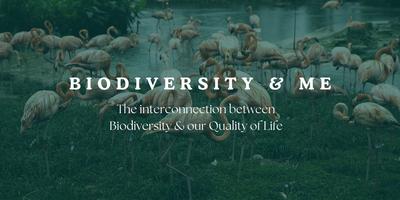- The Transmutation Principle
- Posts
- Trash Talk: Waste & Recycling Challenges in Singapore.
Trash Talk: Waste & Recycling Challenges in Singapore.
The need for more Circularity & less Trash in Singapore
Early this month we had the great privilege of hosting the 2nd episode of SYNC Workshop, spotlighting Circular Economy practices in Singapore, while educating our community about Circular VS Linear Economy, and why Circularity is important to ensure that we don’t outpace the regeneration of our planet.

We also invited the following Eco-Conscious brands to inspire our workshop attendees that it’s possible to commercialise high-quality products that are environmentally & socially conscious.
Here are the brands that have raised the bar for us:
Muuse | Cloop | Ecoworks | .bungkus | Stridy | Semula Pte Ltd | Coco Veda
Bearing in mind that Circularity is more than just recycling.
It’s also about Repairing, Refusing, Regenerating, Sharing & Redistribution of Power, to move past greed, overconsumption, self-destruction, and enable societies to thrive sustainably in harmony with our natural habitat.

Featuring: Bungkus & Cloop - that less can be better!
We also would like to thank SUSS instructor Josephine Lee for her opening keynote bringing to our attention why a land & resource strapped country like Singapore needs to start adopting more Circular practices.
Let’s talk trash. Top 10 waste facts in Singapore you must know:
Limited Landfill Space: Singapore has only one landfill, Semakau Landfill, which is projected to be full by 2035 at the current rate of waste disposal. This scarcity of space necessitates reliance on other methods like incineration, but also highlights the long-term unsustainability of current waste generation levels.
High Waste Generation: Despite efforts to reduce waste, Singapore's waste generation remains high. In 2023, about 6.8 million tonnes of solid waste were generated & recycling rate fell by 5% compared to 2022. This puts significant strain on waste management infrastructure and the environment.
Low Domestic Recycling Rate: Singapore's domestic recycling rate is notably low which has remained at 12%. This means a large proportion of household waste ends up being incinerated or sent to the landfill instead of being reused.
Contamination of Recyclables: A significant amount of material placed in recycling bins is contaminated, often with food and liquid waste. The National Environment Agency (NEA) estimates that about 40% of the contents in blue recycling bins are contaminated, rendering them unrecyclable and leading to incineration.
Reliance on Waste-to-Energy Incineration: While incineration reduces waste volume significantly (by up to 90%) and generates some electricity (around 3% of the nation's needs), it is not without environmental drawbacks. Incineration contributes to carbon emissions and can potentially lead to air pollution, despite NEA claims that current technology is environmentally and health-friendly.
Export of Recyclables: A significant portion of Singapore's recyclables is exported overseas for processing. Increasing import restrictions by other countries mean more of this recyclable waste may end up being incinerated, negating the environmental benefits of recycling. There is also limited transparency about the environmental standards and practices at these overseas processing facilities.
Plastic Waste Challenge: Plastic waste constitutes a significant portion of Singapore's total waste (around 12%). The recycling rate for plastic remains very low, at about 4-5%. The rest is mostly incinerated, contributing to emissions, or ends up in the landfill, where it persists for centuries and can break down into harmful microplastics.
Microplastic Pollution: Inefficient plastic waste management contributes to microplastic pollution in the environment, particularly in marine ecosystems. Microplastics can be ingested by marine life, potentially entering the food chain and causing ecological damage.
Food Waste Disposal: A large amount of food waste is generated, and its low recycling rate (around 18% in 2019) means it is primarily incinerated or landfilled. Decomposing food waste in landfills produces methane, a potent greenhouse gas contributing to climate change.
E-waste generation: Singapore generates 60,000 tones of e-waste on average in a year. That is about 73 mobile phones discarded per person per year. While only 6% of our e-waste is recycled. With our increasing reliance on technology - managing the end-of-life of our gadgets and devices require more consecrated effort to manage the overflow of tech wastage.

Circularity is the future! Shoutout to Ecoworks & Stridy for reminding us to use less plastic!
While our GDP continues to climb & our landfills running out of space in 10 years by 2035. Our current pace of consumption is simply not sustainable.
Economic growth also comes at the expense of our nature.
Singapore has lost 37% of her biodiversity in the last 200 years.
Our loss of biodiversity deserves more attention & urgent action - as it also impedes our quality of life and what we’ll leave behind for our children’s children.
Sip & Learn about our local biodiversity at our Biodiversity Kopitiam
Biodiversity & Me: The interrelation of how biodiversity loss affects our quality of life.
❤️Follow us on Instagram
📣Join Telegram for event announcements
🤝Connect on Linkedin

